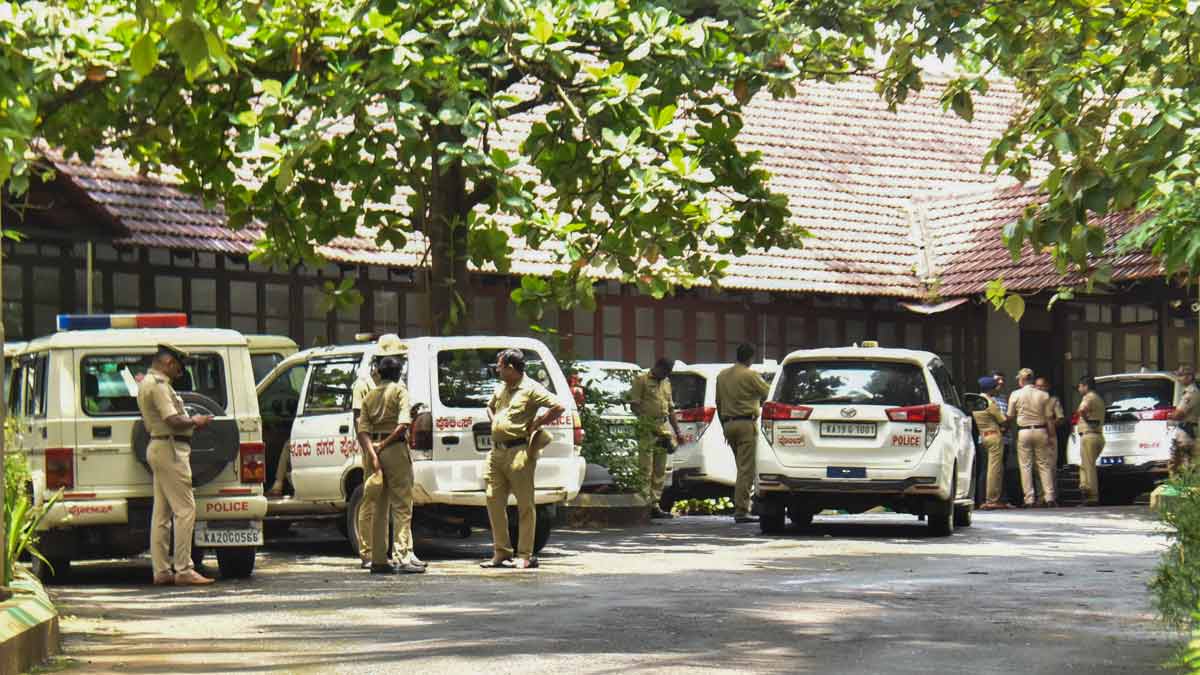Dharmasthala probe takes a new turn; man who claimed mass burials arrested for perjury
 Police personnel at the office of the SIT constituted to probe the case related to the alleged mass burial in Dharmasthala of Dakshina Kannada district, in Mangaluru | PTI
Police personnel at the office of the SIT constituted to probe the case related to the alleged mass burial in Dharmasthala of Dakshina Kannada district, in Mangaluru | PTI
In a major twist in the Dharmasthala case, the Special Investigation Team (SIT) has taken into custody the man who had alleged multiple murders, rapes and burials in the Karnataka village over a period of the past two decades.
The arrest was registered on Saturday morning after police, during a marathon interrogation, found inconsistencies in the statements made by the complainant-witness and the documents he provided.
The man, identified by some media reports as C.N. Chinnayya alias Chenna, will be produced before the Beltangady court later in the day.
The complainant, a former sanitation worker, had claimed that he worked in Dharmasthala between 1995 and 2014, and that he was forced to bury a number of bodies, including those of women and minors, in the village during that period. He had even alleged that some of the bodies showed signs of sexual assault.
The man gave a voluntary statement on oath before a magistrate in Belthangady on July 11, after which he was granted protection under the Witness Protection Scheme.
The Karnataka government formed an SIT, which conducted excavations at multiple locations in the forested areas along the banks of the Netravathi River in Dharmasthala.
Skeletal remains were found at two sites, but the forensic reports did not match the accounts given by the complainant.
The incident sparked a political row in the state with the BJP alleging an unholy nexus behind the campaign against the shrine. The opposition party also alleged that the SIT was formed under pressure from progressive groups, leftists and urban Naxals.
Deputy Chief Minister D.K. Shivakumar also hinted at a "deeper conspiracy" behind the campaign even as Home Minister G. Parameshwara said the state government's actions in probing the allegations are not extra-constitutional and are being conducted within the bounds of law.
India